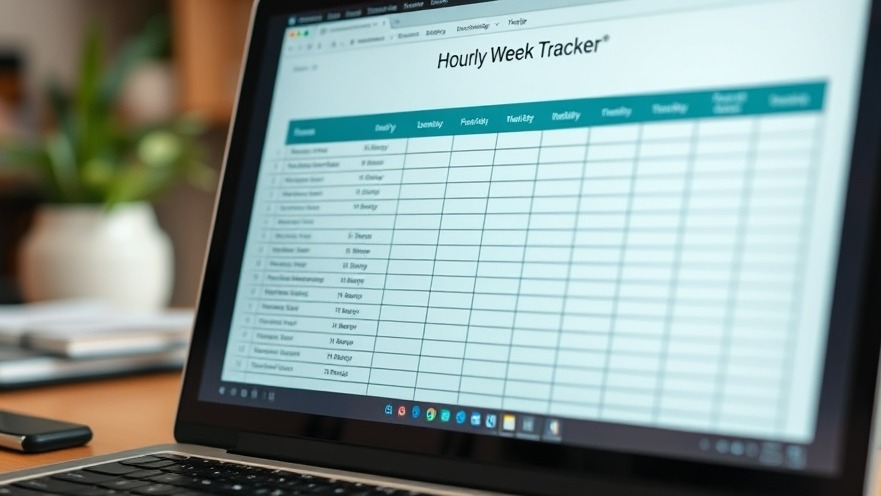
Understanding the Value of Time Tracking
As a digital nomad, optimizing your daily routine can significantly enhance your productivity and overall satisfaction. Time tracking might sound cumbersome, but as Danny Maiorca discovered in his week-long experiment, its insights can be transformative. It's not just about how much time you spend on tasks but how you fill those hours that matter most.
Mornings Set the Tone for Success
One of the key takeaways from the tracking exercise was that mornings play a crucial role in the success of the entire day. The author found that checking notifications in the morning often led to an uphill battle for focus. This revelation is backed by productivity experts, who emphasize the importance of a distraction-free morning routine. For many digital nomads, having a set morning ritual that prioritizes personal time—be it meditation, exercise, or simple reflection—can create a solid foundation for the rest of the day.
The Thursday Trap: Understanding Your Vulnerabilities
Interestingly, the experiment revealed that Thursday was the most distracting day. The temptation to slack off when feeling too relaxed can hinder productivity, echoing insights from fellow professionals who warn against underestimating rest days. Instead of a day of leisure, they can sometimes lead to a decrease in productivity. Acknowledging these patterns can help you combat them; planning light tasks or engaging in creative pursuits on days when you feel less focused can keep your workflow steady instead of allowing distractions to take over.
Weekend Productivity: A Surprising Realization
Contrary to expectations, weekends for the author turned out to be more productive than anticipated. A no-laptop policy proved integral, allowing for mental recharge while still achieving personal goals. This resonates well with health and wellness advocates who argue that a break from work is essential for mental health. For digital nomads, finding the balance between work and personal life is critical. Engaging in non-work-related activities not only nurtures creativity but also aids in maintaining clarity and focus during the workweek.
Implementing Effective Time Management Techniques
The author’s journey underscores the possibility of improving time management through simple, practical steps. Here are a few recommendations that align with the insights gained:
Use a Simple Tracking System: As demonstrated, a straightforward spreadsheet can do wonders compared to complex apps. This simplicity allows you to focus on your tasks without time-consuming setups.
Establish Your Morning Routine: Dedicate the first hour of your day to yourself—be it for exercise, reading, or simply enjoying coffee. This provides the necessary mental clarity for the challenges ahead.
Plan for Vulnerability: Recognize patterns in your productivity. If you tend to slack on days that are meant for rest, develop contingency plans, such as engaging in lighter activities or socializing to keep your brain engaged.
Maximize Weekend Moves: Use weekends for personal projects or hobbies that recharge and inspire. By fostering a dedicated time for learning new skills or indulging in passions, you'll return to work refreshed.
Take the Leap: Start Your Time Tracking Journey
Tracking your time might seem tedious, but the revelations are well worth the worth. As a digital nomad, understanding where your time goes can provide insights that lead to enhanced productivity. Embrace Danny's approach—start simple, commit to a week, and who knows what new patterns or productivity hacks you might uncover!
Have you ever considered tracking your time? If not, it might just be the right step towards achieving your productivity goals. Dive into this experiment yourself and reap the rewards!
 Add Row
Add Row  Add
Add 




Write A Comment